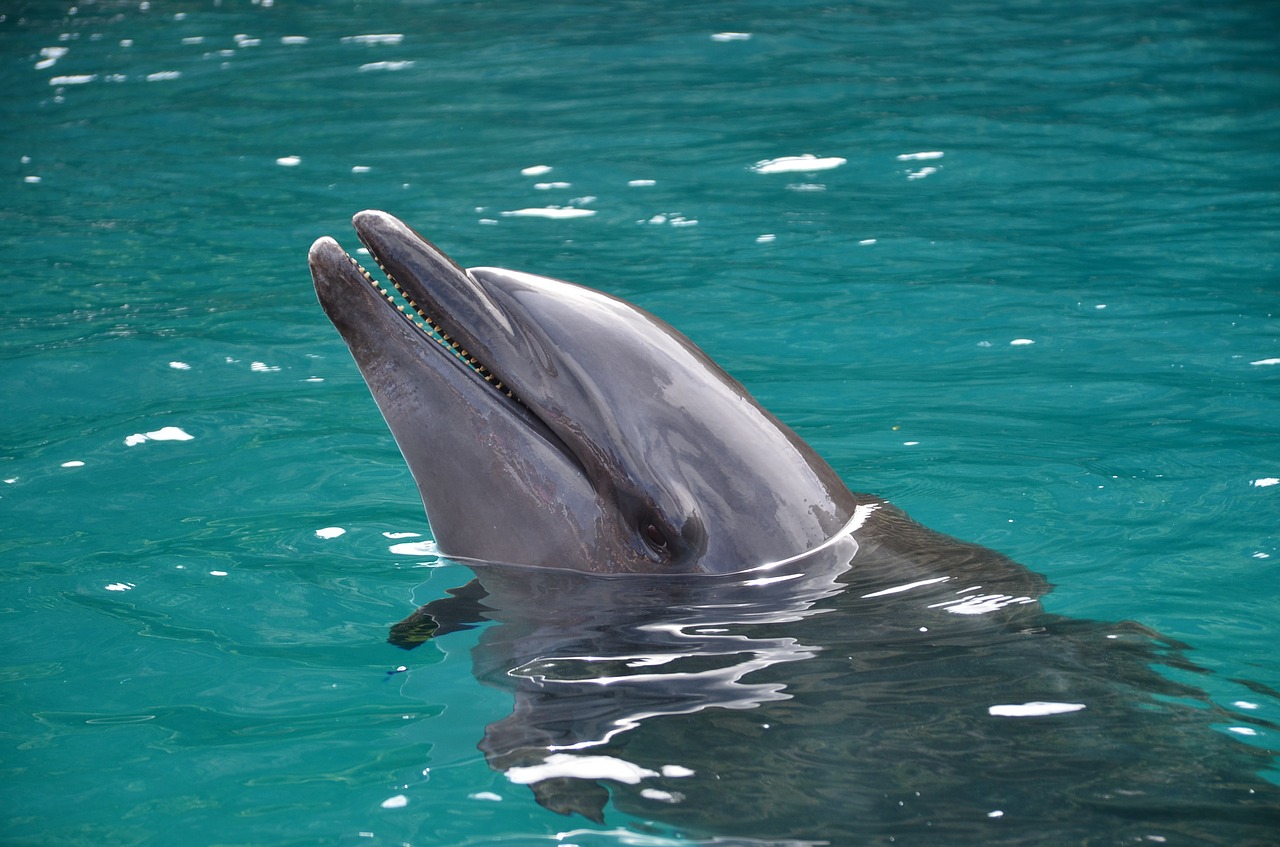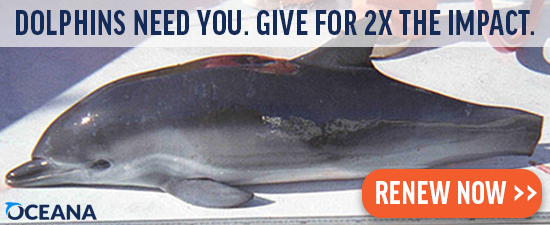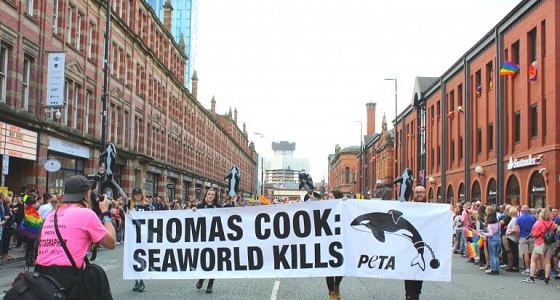Sustainable Action Network (SAN), The Dolphin Project, Today marks the start of the 6 month long Dolphin Hunting and Capturing season off the coast in Taiji, Japan!

Fifteen years ago I stood on the shores of the Cove, watching in disbelief as a
scene of unspeakable cruelty took place in the bloody waters at my feet.
Panic-stricken dolphins, once driven into the Cove, were being slaughtered for
their meat, which is toxic and unfit for human consumption. There were also
extremely violent captures for entertainment. And this is the heart and soul of
what transpires in Taiji. Then and there, I committed to doing all we could to
expose these atrocities to the world.
With the Taiji annual dolphin slaughter starting next week, now, more than ever, I’m asking for your help. As the only organization consistently on the ground in Taiji, we are determined to keep shining a light on what happens there. It’s imperative we livestream and keep documenting, but we can’t do this without your generous support.

With the Taiji annual dolphin slaughter starting next week, now, more than ever, I’m asking for your help. As the only organization consistently on the ground in Taiji, we are determined to keep shining a light on what happens there. It’s imperative we livestream and keep documenting, but we can’t do this without your generous support.

Taiji’s violent captive selection process. Credit:
DolphinProject.com
Thanks to you sharing our images and livestreams, much progress has been made. Japanese activists are starting to come back to Taiji. They have stepped up their fight from within, participating in peaceful demonstrations and educational initiatives. Dolphin captivity is becoming more unpopular, with travel giant Thomas Cook announcing they will no longer promote orca shows. In many parts of the world, the breeding of captive dolphins has been prohibited.
In a perfect world, I would be returning to the Cove on September 1 as I have done since 2003. But a politically-motivated deportation order will prevent me from doing that (a ruling our Japanese legal team is actively fighting). This year, on Japan Dolphins Day, I will be attending three different demonstrations in London and Paris.
Our team will continue to hold vigil at the Cove, because it is our duty to do so. When this level of cruelty is absolute, we must oppose it absolutely. Together, we must do all we can to end this war against dolphins.
 As long as Taiji has dolphins, they will have Dolphin Project. ~
Ric O'Barry
As long as Taiji has dolphins, they will have Dolphin Project. ~
Ric O'BarryPLEASE SUPPORT DOLPHIN PROJECT’S COVE MONITOR CAMPAIGN IN TAIJI TODAY!
Let’s protect dolphins together,
Ric O'Barry, Founder/Director of Dolphin Project
In the Japanese town of Taiji, there’s a disturbing annual event that occurs between the months of September and March: the unregulated slaughter of thousands of dolphins and whales. While hunters try to pass it off as a “tradition” rooted in Japanese culture, the fact of the matter is that the inhumane practice was only very recently established in 1969.
As a lucrative market for dolphin and whale meat and blubber has emerged, hunters in Taiji have jumped on the opportunity to make a profit by killing as many of the cetaceans as possible during the annual hunting season.
While the majority of the aquatic creatures are slaughtered, a select few are captured and soldto aquariums and other tourist attractions each year. Though these whales and dolphins may seem like the lucky ones, their fate is arguably worse, as they are doomed to a depressing lifeof being confined in tiny tanks and entertaining humans.
As word has gotten out about how dolphins are forced into a cove where they can’t escape capture during the yearly “drive hunts,” largely thanks to films like “The Cove,” animal activism in Taiji has spiked. Now, as the beginning of the 2018 hunting season draws near, opponents of the senseless slaughter of Japan’s wild dolphins and whales are taking to the streets of Taiji to protest the cruel event.
Unfortunately, these activists are being met with resistance from the police and local officials, who seem to be determined to keep the money-making killing event alive at all costs. Still, the brave individuals calling for an end to the hunts in Taiji are continuing to take photos of the ports where the lifeless bodies of dolphins and whales are brought in with hopes of raising international awareness about what’s going on in the town.
If you agree that this horrific event needs to be stopped once and for all, please sign this Change.org petition urging the Japanese government to make hunting innocent whales and dolphins illegal all year long! And to help generate widespread awareness about this important issue, don’t forget to share this article with everyone in your network!
A dolphin called Honey, 46 penguins, and hundreds of fish and reptiles have been abandoned at Inubosaki Marine Park Aquarium in Choshi, Japan, after it shut down earlier this year. Former employees are reportedly feeding the animals, but Honey has been left imprisoned in a tiny, filthy pool with green, cloudy water, and penguins have been spotted in unsafe enclosures littered with debris.
Honey—who was captured in 2005 near Taiji during Japan's annual dolphin slaughter—is growing increasingly frustrated and stressed from being deprived of everything that's natural and important to her. If she's transferred to another aquarium, she'll likely spend the rest of her life in a tiny tank, being forced to perform circus-style tricks for food.
It's vital that all the animals imprisoned at the run-down aquarium be released to sanctuaries, where they'd be protected and free from harassment. PETA stands ready to help with their relocation.
Please click here to ask the governor of Chiba Prefecture—who has the authority to release the animals—to take immediate action and transfer the animals to a sanctuary, where they can live out the rest of their days in peace. Take Action!
As confirmed by the Chiba prefectural Health and Welfare department and reported by The Independent, the animals left at this run-down park include hundreds of fish and reptiles, 46 Humboldt penguins, and one bottlenose dolphin who has caught the attention and won the hearts of animal advocates all around the globe.
The dolphin, named Honey, was kidnapped from the wild in 2005 during the infamous bloody Taiji hunts and has been documented in a pool in complete isolation exhibiting signs of zoochosis. Akiko Mitsunobu, chief of aquarium issues for local group Animal Rights Centre, stated, “Honey is a symbol of both the problem of marine parks and Taiji’s hunting practices … When we went to check on the facility, she was showing signs of stress, putting her head weakly in and out of the water.”
These animals are enduring a dismal, almost apocalyptic existence. Watch this video to see for yourself:
Sachiko Azuma, a representative of local activist group PEACE (Put an End to Animal Cruelty and Exploitation), expressed concern for the animals: “I get feelings of danger and doubt from the fact that they are so silent about this … As a group that handles animals, they have a responsibility to explain what they intend to do with Honey and the other animals.”
This news outrages us and is a prime example of why animal captivity must end now! Unfortunately, this is not the only marine park or aquarium in the world that neglects animals in their care. In fact, it’s more or less a guarantee that captive animals used for entertainment are severely mistreated, neglected, often physically abused, and at the bare minimum, exploited.
The best thing you can do for captive animals is never to buy a ticket to one of these parks! Of course, spreading awareness of the issues at hand has great power to influence minds and keep even more people from supporting this type of “entertainment,” so PLEASE do your part to help empty the tanks and SHARE this with your network as an eye-opener to the reality of animal captivity.
Off the coast of California, a smart, spirited dolphin should be playing
with her family and living life to the fullest. Instead, she is running into a
fishing gear called a drift gillnet. Once entangled, each time she
struggles to break free, the net cuts deeper and deeper into her neck, mouth and
flippers until she runs out of oxygen.
Fewer than 20 swordfish drift gillnet vessels kill more dolphins than all other observed U.S. West Coast fisheries combined, according to National Oceanic and Atmospheric Administration (NOAA). This is the only fishery in the entire U.S. permitted to use these types of large mesh drift gillnets. We’re running an urgent campaign to ban this destructive gear once and for all – but we need your help.
We’re
SO CLOSE to ending this blood-stained history of dolphin killing. Last
month, the California State Senate passed a bill to phase out the use of drift
gillnets and to provide incentives to switch to cleaner fishing gear. While
this is an important step toward victory, our fight is still far from over as we
try to get this legislation through the California Assembly and similar federal
legislation through the U.S. Congress.
Victory! Travel Giant Thomas Cook Cuts Ties With SeaWorld. After a yearlong PETA campaign, Thomas Cook has announced that it'll stop selling tickets to SeaWorld, which forces orcas to spend their entire lives in tiny, concrete cells. In doing so, it has become a world-leading travel provider for animal welfare, and it's time others followed suit.
Will
Vancouver Aquarium Abide by Captivity Ban? In
January of this year, we shared the incredible news that the Vancouver Aquarium
agreed to end its captivity of dolphins and whales, thanks in large part to your
efforts! Despite this decision, the issue remains somewhat
unresolved. READ
MORE
| PARTICIPATE |
RSVP for an event or become a Japan Dolphins Day host. |
DONATE
|
 Ric O'Barry, Founder/Director of Dolphin Project
Ric O'Barry, Founder/Director of Dolphin Project







